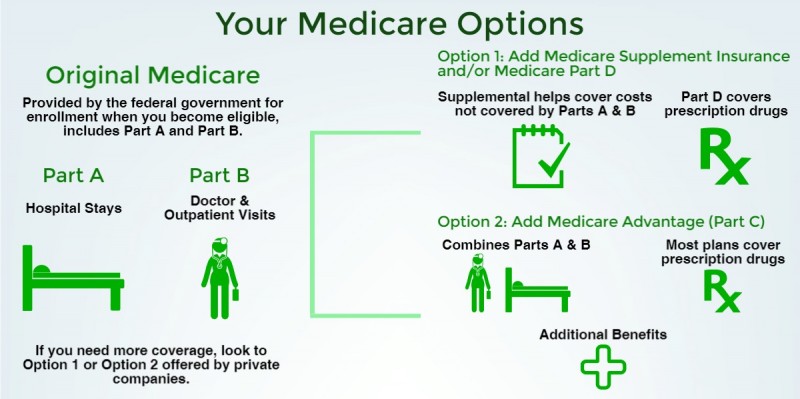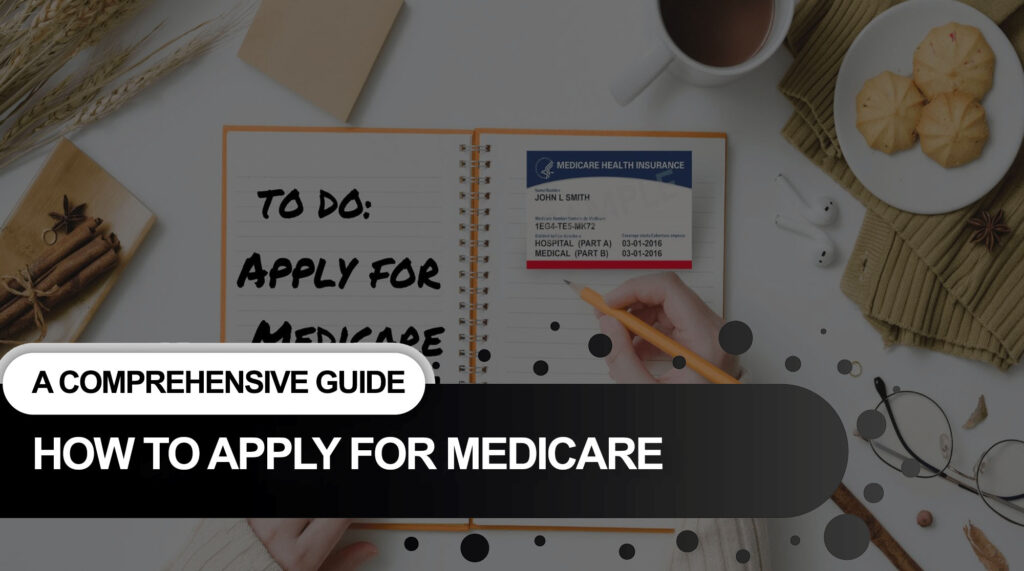Medicare, the federal health insurance program for individuals aged 65 and older, plays a crucial role in providing accessible healthcare. Understanding how to apply for Medicare is essential for ensuring timely access to necessary medical services. In this guide, we’ll walk you through the eligibility criteria, the different parts of Medicare, and the step-by-step process of applying.
Eligibility Criteria

Age Requirement
To qualify for Medicare, individuals must be at least 65 years old. This age requirement ensures that seniors can access healthcare services tailored to their needs.
Qualifications for People Under 65 with Disabilities
People under 65 can qualify for Medicare if they have certain disabilities. This provision ensures that those facing health challenges receive the necessary support.
Qualifications for People with End-Stage Renal Disease
Individuals with end-stage renal disease, such as those undergoing dialysis or needing a kidney transplant, also qualify for Medicare.
Understanding Medicare Parts
- Hospital Insurance: Part A covers inpatient hospital stays, skilled nursing facility care, hospice care, and some home health care services.
- Medical Insurance: Part B covers outpatient care, preventive services, and durable medical equipment, ensuring comprehensive medical coverage.
- Medicare Advantage: Plans Medicare Advantage Plans, also known as Part C, offer an alternative to Original Medicare by combining Part A and Part B coverage.
- Prescription Drug Coverage: Part D provides prescription drug coverage, ensuring access to necessary medications.
Steps to Apply for Medicare
Research and Gather Information
Before applying, research the different parts of Medicare and gather necessary personal and financial information.
Choose the Right Time to Apply
Understanding when to apply is crucial. The Initial Enrollment Period begins three months before turning 65 and extends for seven months.
Online Application Process
Applying online through the official Social Security website streamlines the process, providing a convenient option for applicants.
Applying Through Social Security
Visit a local Social Security office to apply in person, ensuring that you receive assistance and guidance during the application.
Applying in Person at a Local Social Security Office
For those who prefer face-to-face interactions, applying in person allows for direct support from Social Security representatives.
Tips for a Smooth Application Process

Stay Organized with Necessary Documents
Organize personal and financial documents to streamline the application process.
Seek Guidance from Medicare Counselors or Advisors
Medicare counselors and advisors provide valuable assistance in navigating the complexities of the application process.
Double-Check Application Details Before Submission
Avoid errors by carefully reviewing application details before submission to prevent unnecessary delays.
What Happens After Applying?
Receiving the Medicare Card
Once approved, you’ll receive a Medicare card confirming your enrollment and detailing your coverage.
Understanding Coverage Start Dates
Be aware of when your coverage starts to ensure seamless access to healthcare services.
Additional Resources

Medicare Website and Official Resources
Utilize the official Medicare website and other reliable resources to access accurate and up-to-date information.
Community Resources and Support Groups
Community resources and support groups provide additional assistance and a sense of community for Medicare beneficiaries.
Contact Information for Further Assistance
In case of uncertainties, reach out to designated contact points for prompt assistance.
Comparing Medicare Plans
Analyzing Individual Needs for Optimal Plan Selection
Considering individual healthcare needs is crucial for selecting the most suitable Medicare plan.
Understanding the Differences Between Original Medicare and Medicare Advantage
Explore the distinctions between Original Medicare and Medicare Advantage Plans to make informed decisions.
Navigating Medicare Open Enrollment

Importance of Annual Plan Reviews
Annual reviews during the open enrollment period allow for adjustments to meet changing healthcare needs.
Making Changes to Coverage During the Open Enrollment Period
Flexibility during open enrollment enables beneficiaries to make necessary changes to their coverage.
Future Considerations
Updates and Changes to Medicare Policies
Stay informed about potential updates and changes to Medicare policies for ongoing optimal coverage.
Staying Informed About Medicare Advancements
Remaining aware of advancements ensures beneficiaries benefit from the latest healthcare options.
Final Thoughts
Applying for Medicare is a pivotal step in ensuring access to essential healthcare services. By understanding the eligibility criteria, navigating the application process, and staying informed about coverage options, individuals can make informed decisions for their well-being.
FAQs
Applicants typically need identification, proof of citizenship, and financial information.
Yes, individuals under 65 with qualifying disabilities can apply for Medicare online.
Missing the Initial Enrollment Period may result in late enrollment penalties, so it’s crucial to apply during this timeframe.
Review and update your Medicare plan annually during the open enrollment period to ensure it aligns with your current healthcare needs.
Yes, late applications may incur penalties, emphasizing the importance of timely enrollment.








